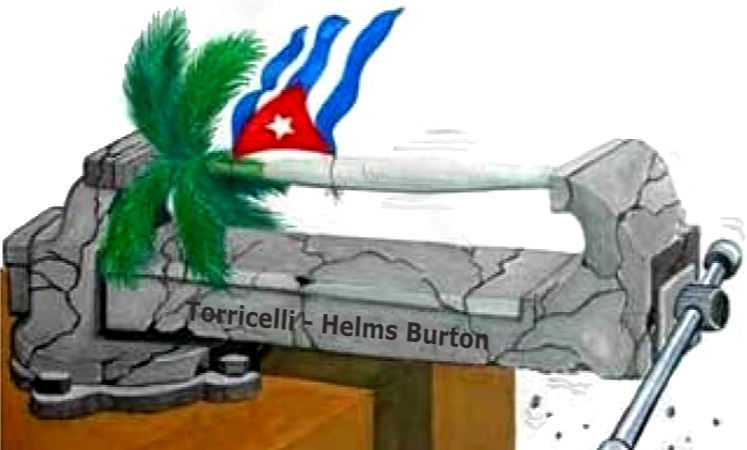This 24 September marks 33 years since the approval of the Torricelli Act, also known as the Cuban Democracy Act, legislation that intensified the US economic, commercial, and financial blockade against Cuba
Despite the passage of time, the effects of this regulation persist, severely impacting both the Cuban economy and its population
Enacted in 1992, during an electoral period in the United States, the Torricelli Act was driven by Congressman Robert Torricelli and represented a radical turn in US policy towards Cuba
Among its strictest measures is the prohibition of trade between Cuba and subsidiaries of US companies located in third countries, as well as more severe restrictions on the delivery of humanitarian aid
The context in which this law was approved was especially critical for Cuba: following the collapse of the Soviet Union and the disappearance of the European socialist bloc, the island experienced the so-called «Special Period», a time of grave economic crisis, marked by shortages of food, medicine, fuel, and other essential goods
The Torricelli Act was designed to further worsen the economic vulnerability of the Antillean nation
More than three decades after its implementation, the law has been one of the main causes of Cuba’s economic losses, which amount to more than 170 billion dollars, according to the Ministry of Foreign Affairs (Minrex)
Essential sectors such as health, energy, industry, and international finance continue to be affected by the restrictions imposed by this and other regulations that maintain the economic siege on the island
The blockade makes obtaining international financing difficult, which affects the operation of key infrastructure, such as power stations, or the repair of water supply systems
According to Izca Lisbeth Borges Moles, a specialist in the Repair and Maintenance Unit for Power Stations in Santiago de Cuba, due to the restrictions, the country must resort to intermediaries to acquire essential spare parts, which raises costs and limits the resources available to maintain the operability of the electrical infrastructure
For his part, Wilmer Estrada Heredia, delegate for Hydraulic Resources in the province, highlighted the direct impact of the blockade on the water supply, due to the impossibility of acquiring pumps, electrical accessories, and cement for the construction of new works
An investment project in the Palma Soriano municipality, which would initially benefit more than 80 thousand people, has only managed to impact 27 thousand due to the freezing of the credit allocated for its function
Although the US leadership justifies the blockade as a measure to pressure the Cuban government, in practice, its effects fall primarily on the population
The scarcity of food, medicine, school supplies, and technologies has generated grave precariousness, which has been exacerbated by the global economic crisis and the COVID-19 pandemic
Limited access to medicines for serious illnesses, such as cancer, and the lack of high-tech medical equipment are just some examples of how the policy of economic asphyxiation affects Cubans
To this is added the exodus of young people and professionals seeking better opportunities, a phenomenon that has intensified due to the economic and financial restrictions imposed from Washington
In October 2024, the United Nations General Assembly voted, for the thirty-second consecutive time, in favour of the resolution presented by Cuba to end the blockade, with 187 votes in favour and only two against: the United States and Israel
Analysts and international leaders agree that, far from achieving its objectives, the blockade has failed as a strategy to induce political change in Cuba, and has been the principal cause of the crisis facing the country
The Torricelli Act, together with the Helms-Burton Act of 1996, consolidated the extraterritorial and coercive nature of this measure, turning it into a state policy difficult to reverse without the intervention of the US Congress
This legal framework has limited Cuba’s development options and has obstructed humanitarian cooperation initiatives
33 years after its enactment, the Cuban population continues to face the consequences of a policy that, globally, has been and will be condemned in an almost unanimous manner (Written by: Indira Ferrer Alonso)




